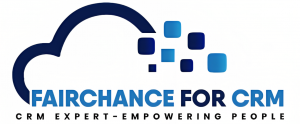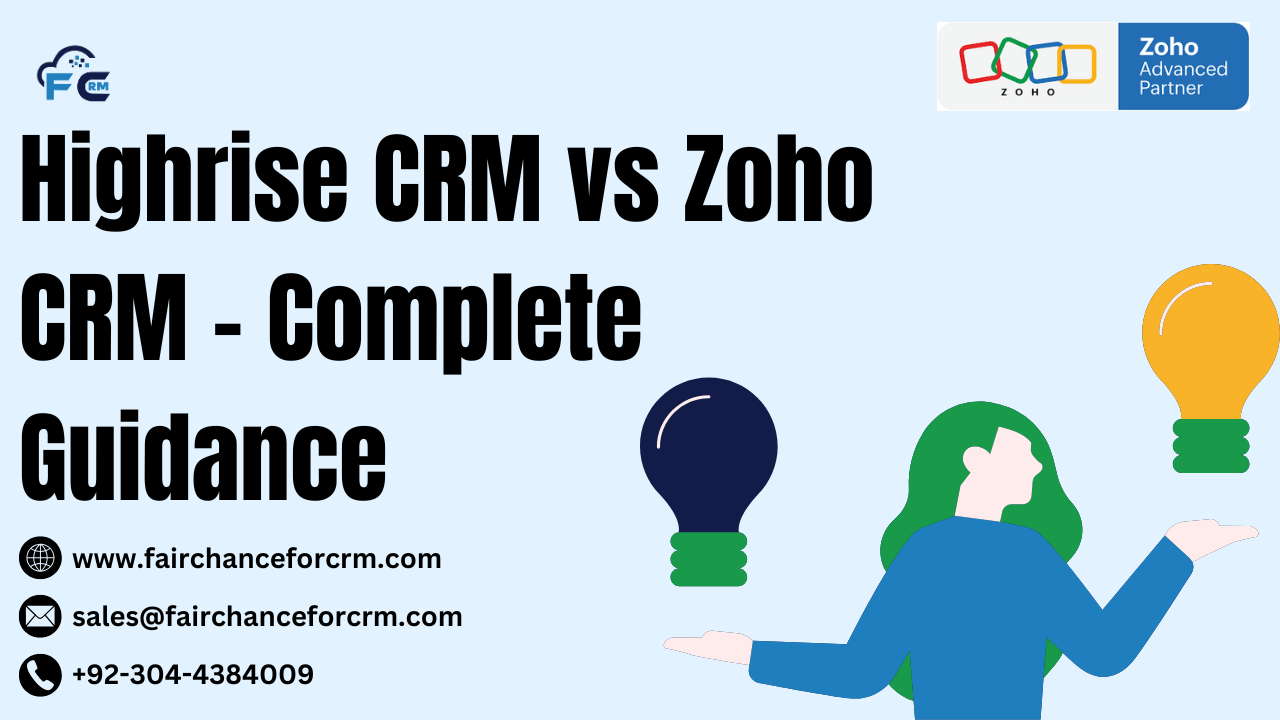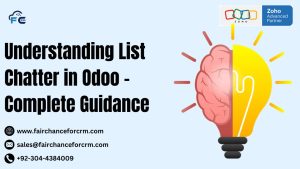When it comes to choosing a CRM (Customer Relationship Management) platform, businesses often have to decide between simplicity and advanced features. Highrise CRM vs Zoho CRM are both excellent choices, but they cater to different business needs. In this blog, we’ll explore Highrise CRM vs Zoho CRM in detail, including pricing, key features, advantages, best use cases, and more.
Also Read:
- Salesforce CRM vs Zoho CRM: Which CRM is Right for Your Business?
- Odoo Cloud: Revolutionizing Business Management with Flexibility and Scalability
- How to Configure SSL for Odoo? A Complete Guide
- Zoho Assist – Simplifying Remote Support and Access
- Zoho One Admin: A Guide to Managing Your Business
Highrise CRM vs Zoho CRM – Complete Details
1. Highrise CRM: Overview
Highrise CRM is known for its simplicity, making it a great choice for small businesses and teams that don’t require complex functionality but still want an efficient system to manage contacts, tasks, and communications.
Pricing for Highrise CRM
Highrise offers transparent and affordable pricing plans, especially suitable for small teams and startups:
- Basic Plan: $24/month for 1 user
- Includes basic features like contact management, task tracking, and email integration.
- Plus Plan: $49/month for 1 user
- Adds advanced features like search filters, shared to-do lists, and team collaboration tools.
- Premium Plan: $99/month for 1 user
- Includes advanced customization options, priority support, and more detailed reporting.
Key Features of Highrise CRM
- Contact Management:
- Easy to manage and search for contacts.
- Organize contacts with tags, notes, and lists for better segmentation.
- Task Management:
- Create and track to-do lists.
- Assign tasks to team members and monitor progress.
- Email Integration:
- Connect your email to log correspondence automatically.
- Seamlessly send and receive emails from within the CRM.
- Notes & File Storage:
- Attach notes and files to contacts, tasks, or deals for detailed records.
- Team Collaboration:
- Share contacts, notes, and tasks easily among team members.
- Simplicity:
- Clean, minimalistic interface makes it easy for users to navigate without a steep learning curve.
Advantages of Highrise CRM
- Simplicity: It’s designed for users who need a CRM that is easy to set up and use with minimal effort.
- Affordability: Highrise offers low-cost pricing, especially suitable for small teams or startups.
- Ease of Use: Highrise is very straightforward, so your team can get up and running without technical expertise.
- Focus on Basics: Highrise does contact management, task tracking, and communication well, without overloading users with unnecessary complexity.
Best Use Cases for Highrise CRM
- Small businesses: Highrise is best for small teams that need a basic CRM without an overwhelming array of features.
- Freelancers or Solo Entrepreneurs: If you’re managing just a few clients and need simple task tracking, Highrise is ideal.
- Companies on a Budget: Highrise is cost-effective for teams that only need core CRM functionalities.
2. Zoho CRM: Overview
Zoho CRM is a comprehensive, feature-rich CRM designed for businesses of all sizes, with the ability to scale from small businesses to large enterprises. It offers advanced functionalities such as AI-powered analytics, automation, multichannel communication, and robust reporting.
Pricing for Zoho CRM
Zoho CRM offers flexible pricing plans tailored to businesses of different sizes and needs:
- Free Plan: Free for up to 3 users
- Includes basic CRM functionalities like lead and contact management, task management, and email integration.
- Standard Plan: $14/user/month
- Adds features like workflow automation, custom fields, and reporting.
- Professional Plan: $23/user/month
- Includes sales forecasting, custom dashboards, and advanced integrations.
- Enterprise Plan: $40/user/month
- Provides advanced customization options, AI-powered analytics, multi-department support, and real-time reporting.
- Ultimate Plan: $52/user/month
- Includes the most advanced features like unlimited records, dedicated database support, advanced analytics, and enhanced reporting.
Key Features of Zoho CRM
- Lead and Contact Management:
- Track leads, contacts, and deals efficiently with custom fields, segmentation, and detailed records.
- Sales Automation:
- Automate sales processes, such as follow-ups, task assignments, and lead nurturing with workflows.
- Multichannel Communication:
- Engage with customers through email, social media, live chat, phone, and even SMS, all within the CRM.
- AI-Powered Insights with Zia:
- Zia, the AI assistant, provides predictive sales analytics, sentiment analysis, and automated task recommendations to increase sales productivity.
- Sales Forecasting:
- Zoho CRM offers advanced forecasting to predict sales performance based on historical data and current trends.
- Reporting and Analytics:
- Create detailed reports, custom dashboards, and in-depth analytics to track KPIs, sales performance, and team productivity.
- Customization:
- Tailor the CRM to your business needs with custom fields, workflows, user roles, permissions, and layouts.
- Integrations:
- Zoho CRM integrates seamlessly with other Zoho applications (e.g., Zoho Books, Zoho Desk), as well as third-party apps like Google Workspace, Microsoft 365, and over 500 other tools.
Advantages of Zoho CRM
- Feature-Rich: Zoho CRM provides a wide range of features including advanced automation, AI, sales forecasting, and multichannel communication.
- Highly Customizable: You can tailor Zoho CRM to meet your unique business requirements with custom fields, workflows, and reports.
- AI and Automation: Zoho’s AI-powered assistant Zia helps businesses increase efficiency with intelligent task recommendations and predictive analytics.
- Scalability: Zoho CRM can scale as your business grows, offering solutions that suit small businesses as well as large enterprises.
- Multichannel Support: Supports communication via email, social media, chat, phone, and more, providing a 360-degree view of customer interactions.
Best Use Cases for Zoho CRM
- Growing Businesses: Zoho CRM is ideal for businesses that need advanced features and scalability. It’s perfect for those who require powerful automation, custom workflows, and data-driven insights.
- Large Enterprises: With its AI, reporting, and customizable workflows, Zoho CRM is excellent for large teams managing complex sales pipelines and customer interactions.
- Marketing-Driven Teams: Businesses with complex marketing needs will benefit from Zoho’s marketing automation, multichannel communication, and lead nurturing capabilities.
Comparison: Highrise CRM vs Zoho CRM
| Feature | Highrise CRM | Zoho CRM |
|---|---|---|
| Pricing | $24 – $99/month (1 user) | Free for 3 users, $14 – $52/user/month |
| Target Audience | Small businesses, freelancers, teams with basic needs | Small businesses to large enterprises with diverse needs |
| User Interface | Simple, intuitive, and easy to use | Feature-rich but requires a learning curve |
| Customization | Limited customization options | Highly customizable with workflows, fields, and permissions |
| Automation | Basic task reminders and to-dos | Advanced automation for sales processes and follow-ups |
| Reporting & Analytics | Basic reporting | Advanced reporting, custom dashboards, and AI-powered analytics |
| Integrations | Limited integrations (Google Apps) | Integrates with 500+ apps, including Zoho Suite and third-party tools |
| AI-Powered Insights | None | Zia (AI assistant) provides predictive analytics and task recommendations |
| Mobile App | Mobile app with basic features | Full-featured mobile app with access to all CRM functions |
| Customer Support | Email support, knowledge base | 24/7 support (phone support with higher plans), knowledge base, community forums |
Conclusion: Which CRM Should You Choose? Highrise CRM vs Zoho CRM
Choose Highrise CRM if:
- You need a simple, easy-to-use CRM for basic contact and task management.
- You’re a small team or freelancer with limited budgets who want an affordable solution.
- You don’t need complex reporting, automation, or customization features.
Choose Zoho CRM if:
- You need an advanced CRM with robust automation, AI-powered insights, and powerful customization options.
- You’re a growing business, an enterprise, or a team that needs to scale and manage multiple communication channels and sales processaes.
- You require advanced reporting and data-driven insights to improve sales and customer engagement.
Ultimately, both Highrise CRM vs Zoho CRM are great, but your decision should depend on the complexity of your needs, business size, and growth potential. Highrise excels in simplicity, while Zoho CRM offers a comprehensive, scalable solution for businesses that need advanced capabilities.
For more information about the Highrise CRM vs Zoho CRM: visit this link.
If you want to Free Trail Zoho, click on this link.




